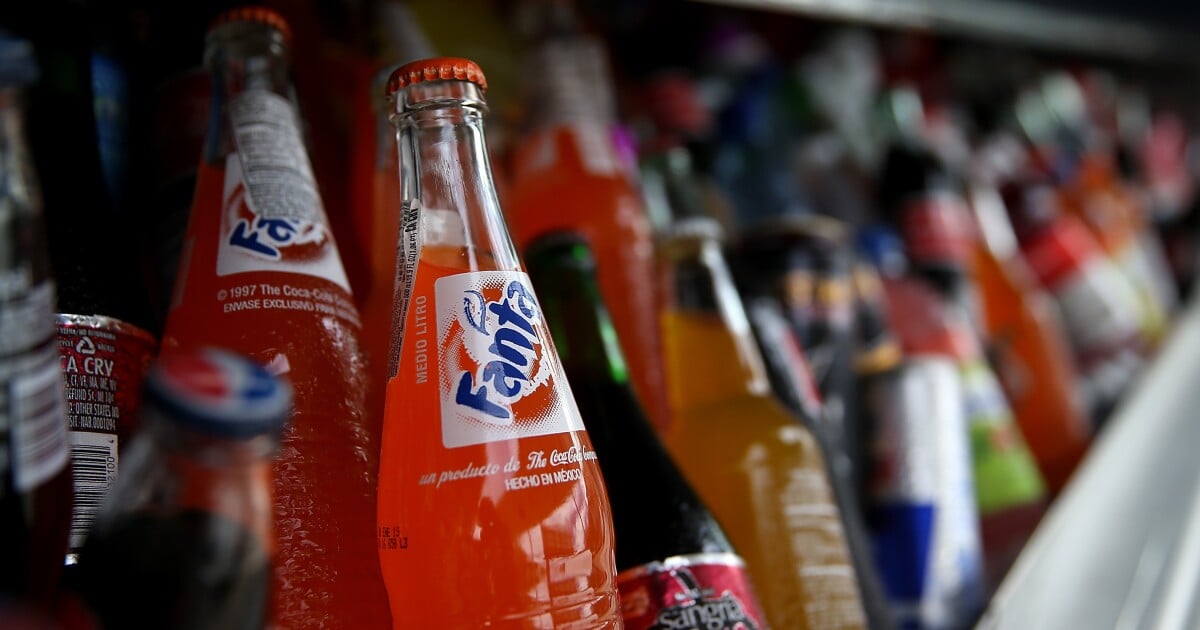Sales of sugary drinks fell dramatically across five U.S. cities, after they implemented taxes targeting those drinks – and those changes were sustained over time. That’s according to a study published Friday in the journal JAMA Health Forum.
Researchers say the findings provide more evidence that these controversial taxes really do work. A claim the beverage industry disputes.
The cities studied were: Philadelphia, Seattle, San Francisco and Oakland, Calif., and Boulder, Colo. Taxes ranged from 1 to 2 cents per ounce. For a 2-liter bottle of soda, that comes out to between 67 cents to $1.30 extra in taxes.
…
Kaplan and his colleagues found that, on average, prices for sugar-sweetened drinks went up by 33.1% and purchases went down by basically the same amount – 33%.
Which is what the beverage companies were afraid of so here in Washington they spent millions lobbying and lying to get it banned from happening outside Seattle.
A claim the beverage industry disputes.
I mean, if they really believed the sales wouldn’t drop, why did they complain?
They know sales will drop. They’re blatantly lying and getting away with it.
I have cut my soda down to once or twice per week, but I still do enjoy it.
I encourage everyone who likes sugary soda to at least try flavoured sparkling water. Personally I have replaced nearly all my soda intake with it, and the fruit flavored ones are surprisingly sweet without any sugar or artificial sweetener, and I imagine are way healthier than even diet soda. If you find that you like it, getting a sparkling water machine like a Soda Stream is also more environmentally friendly and more cost effective if you drink a lot of it as well.
I like both but they definitely aren’t interchangeable for me.
When I want a seltzer that’s what I want and a coke is too sweet.
When I want a coke, the seltzer isn’t sweet enough.
That being said, one of the few healthy changes I made and stuck with was after making my most recent move 6 years ago, I just didn’t buy 2L bottles of soda to keep in stock in the fridge.
Didn’t boycott them, didn’t avoid them in restaurants or convenience stores, and I still keep a few baby cans as mixers in the bar at my apartment, but in that list of things you just get when you run low to keep a stock…I just kinda took soda off that list.
Found that I only really missed it a few times a year, and if I was really craving it, I could go get a little can from the bar…but just that one small change probably cut my soda consumption by like 85% and I barely miss it.

Did we really need a study to prove supply and demand still works?
The supply and demand curve is about how those two determine the price. With the tax, we are talking about the price “controls” affecting the demand, not the other way around.
And, additionally, even if we think the outcome should be obvious, it’s always important to do a structured objective analysis to see if that was actually the case because, if it wasn’t, it’s time to revisit the theory or figure out what went wrong.
you can model the tax on the supply or the demand. in most simple models the outcome is the same
Maybe you can, that would make sense. But it’s really neither supply nor demand, so it’s just forcing it into the model, which you’ve now made more complicated and no longer the simple curve that the op was suggesting it is.
The argument would presumably be that demand is highly price-inelastic. Which seems ludicrous to me for soft drinks, but you could try making the argument if it was in your interest to do so.
deleted by creator
So do 100% orange juice/grape juice have the same taxes? Because these are just as sugary, if not more so, than soda. Sugar is sugar, doesn’t matter the source. If they’re not taxed the exact same way as soda, then this is a bullshit tax that shouldn’t survive a challenge in court.
I’m not a fan of juice for the reasons you point out. But soda provides pretty much no nutritional value, it’s just pure sugar. At least with juice you get some other nutritional benefits. . .although, you should obviously get that from eating it and not drinking it.
But I think the tax laws are, generally speaking, if they don’t include juices, are for drinks with added sugar/sweeteners which would exempt 100% juice. This would probably pretty easily hold up in court.
“No sweets for the poor, fuck you.”
Thanks for deciding what’s good for me government, and not the cool way by making HFCS be replaced with real sugar at the manufacturer level, just the way that sucks for me. 'Preciate it.
I have type 2 diabetes so make my own with club soda, lemon and lime juice, sweetened with stevia. Tastes pretty good and keeps my blood sugar in check.
Sociatal health in the US would improve a lot if restaurants would drop the free refills.
yall have free refills? I’ve never seen that around here
It is my political opinion that milk, water, tea (practically water), and vodka are the only beverages fit for human consumption. There’s an argument to be made for certain juices, but it can be safely ignored as Dole propaganda. You only get the two sets of teeth, all.
It’s my political opinion that milk should only be consumed if it comes from a consenting adult.
How do I get consent from an adult cow?
Hmm! 👀
What if I don’t want to be healthy? Why must the government punish me? If behavior is to be corrected by law, correct the companies not the people.
If one’s goals are say, maximize freedom and fairness/equality/equity for humans and minimize harm from sugary drinks, it makes more to ban the advertising of these unhealthy foods rather than make them more difficult to procure for those with less money.
So some other person can come behind you and say, “what if I want to know about different ways I can be unhealthy!?”
Give me a break. Government ends up footing the bill for the outcomes of these decisions. We can either tax the people making these decisions to pay for it, or tax everyone to pay for it. The latter just means people who don’t engagie in the behavior subsidize the people who do.
Tax unhealthy foods, make (actually) healthy food tax free. And not food that some marketing shitbag slaps a name like “healthy choice” on. Actually healthy food.
Use that tax money to subsidize the production & distribution of healthy food, especially to eliminate food deserts. This will lower the cost to the government of dealing with the consequences of unhealthy foods.
So, I’m in favour of sugar taxes, but lots of studies have found that healthy people actually cost more in the long run, because they actually live into their old age where they start costing a shit ton. For the most part unhealthy people just end up dying young.
Can you share the studies you base your argument on? Those who live longer might also pay more tax, so it’s not a clear cut for me.
So, companies advertise to make more people buy something but then governments tax it to make less people buy it. Hmmm ok.
Also, human nutrition is highly controversial, should we really be basing health oriented taxes on moving/unstable science?
I’m sure any day now a big, peer reviewed study will come out that says Coke is good for you.
“Coke, it does a body good.”
Isn’t that the slogan or am I getting mixed up











